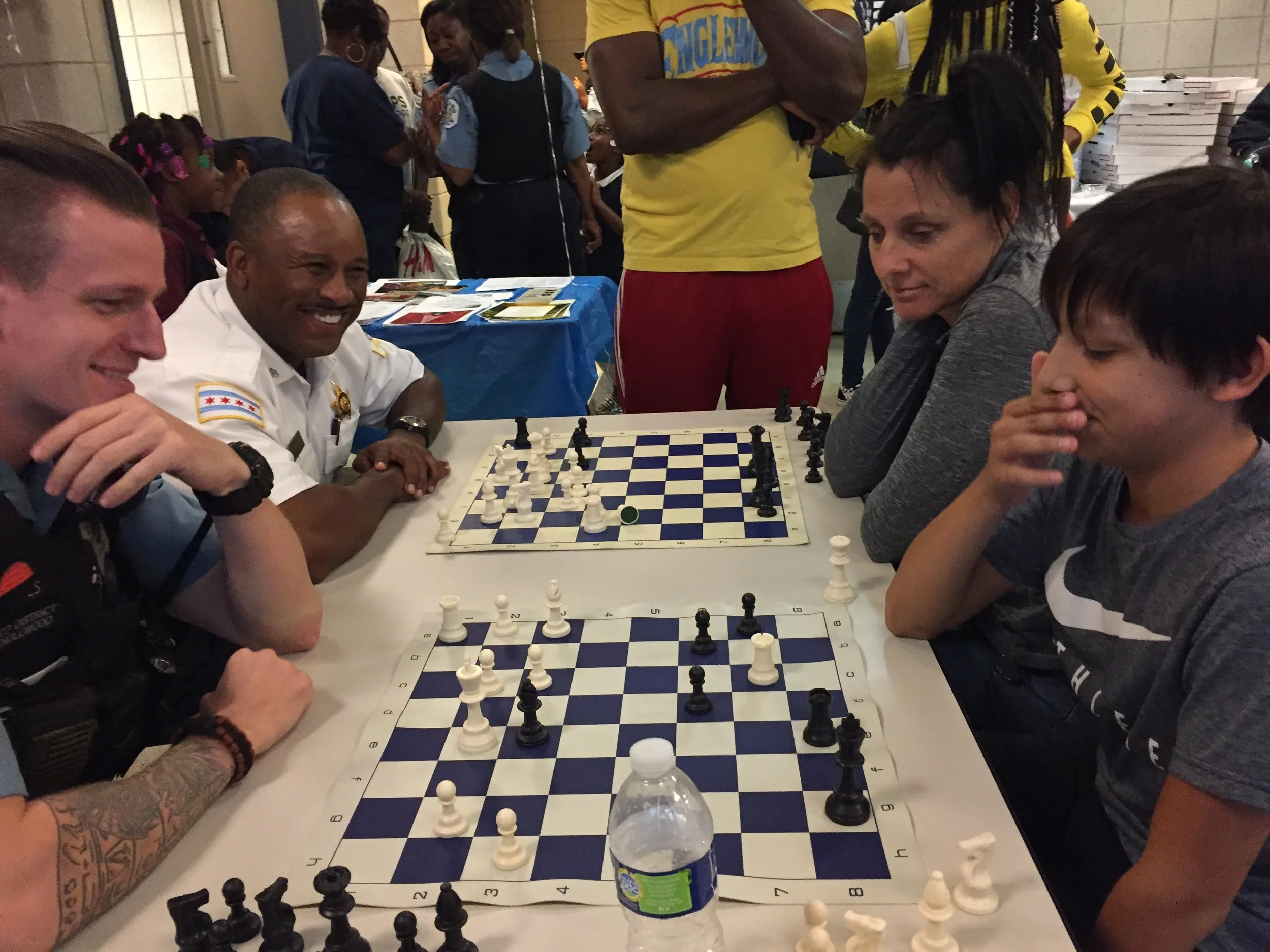
Projects
Operationalizing Community Policing
Community policing is a philosophy that emphasizes collaboration between police and the community to build trust and solve problems. The Chicago Police Department's (CPD) consent decree mandates that every CPD member – sworn officers and civilians – be responsible for making community policing a core component of its programs, training, resource deployment, and accountability systems.
CPD Workforce Allocation Study Scope
It is imperative that CPD accomplish the changes the Consent Decree requires while maintaining the day-to-day operations that ensure public safety. Both priorities require careful planning of workforce allocation for how officers are deployed.
911 Alternate Response Strategy
The field of alternate response has matured significantly over the past few years, particularly within the context of a nationwide push to reimagine public safety. A recent report found that the majority of Chicago’s 911 calls are related to non-urgent matters like car accidents, mental or physical health issues, or noise complaints.
Chicago’s Mental Health Alternate Response Expansion
Chicago’s Crisis Assistance Response and Engagement (CARE) program responds to 911 calls involving individuals experiencing a mental health or substance use-related crisis. The City has continued to scale up operations since the first on-the-ground team was launched in September 2021. Early in his tenure, Mayor Brandon Johnson committed to expanding the CARE program for two reasons: alternate response directly supports his “Treatment Not Trauma” policy priority, and the work is an element of his “People’s Plan for Community Safety.”
Chicago’s People’s Plan for Community Safety
Violence in Chicago is a complex issue that is a symptom of underlying challenges of systemic racism, poverty, and social disinvestment. Shootings and homicides recorded in Chicago fell by 13% in 2023 as violence rates returned to pre-pandemic levels, but the number of people killed last year was still among the city’s highest over the past two decades. Communities also continue to suffer harm that extends beyond violence and disparately affects Chicago’s West and South Side neighborhoods.
Community Violence Intervention Public-Private One Table
Community Violence Intervention (CVI) uses multidisciplinary strategies to engage individuals and groups to prevent and disrupt cycles of violence and retaliation. It establishes relationships between individuals and community assets to deliver services that save lives, address trauma, provide opportunity, and improve physical, social, and economic conditions to prevent violence.
CPD & CVI Professional Understanding
Starting in 2020, the City of Chicago, Cook County, and the State of Illinois significantly increased investment in community violence intervention (CVI) services in Chicago – including street outreach – as part of a holistic and community-driven approach to violence reduction. As street outreach teams respond to more incidents, there is a need for clarity on roles and protocols between the Chicago Police Department (CPD) and CVI providers.
Philanthropy Portfolio Review
Partnership for Safe and Peaceful Communities (PSPC) is a coalition of funders who have been successful in building an evidence base for gun violence reduction strategies, namely Community Violence Intervention (CVI). Over the past four years, the field of CVI has expanded due to government investment and has recently become a focus of the Public Safety Task Force of the Civic Committee of the Commercial Club of Chicago.
Cook County Pretrial Stakeholders Group
Since 2014, Civic Consulting Alliance has facilitated the Cook County Pretrial Stakeholders’ Group, tasked with promoting community safety and reducing reliance on incarceration. This includes mitigating the destabilizing effects of the system at every contact point, with a particular focus on helping those disproportionately impacted during the pretrial stages of criminal prosecution.
Chicago’s Mental Health Expansion Working Group
In September 2023, the Chicago City Council passed an ordinance creating the Treatment Not Trauma Working Group of internal stakeholders. The ordinance required a report with recommendations for expanding non-police alternate crisis response programs and clinical services while increasing community awareness of both.
Envisioning Health Hubs for Chicago
The Chicago Department of Public Health (CDPH) is organized to provide guidance, services, and strategies that make Chicago a healthier and safer city. However, the pandemic and demand for adding City-run mental health clinics have pushed the agency to increase the types of direct services provided to the public











